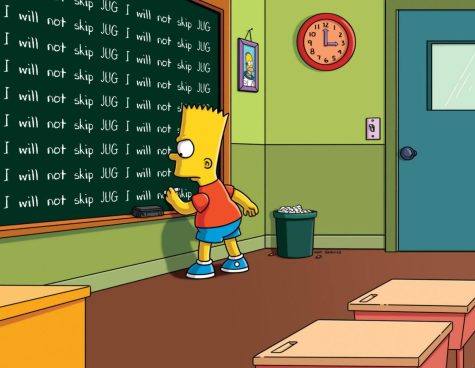Who profits from AP Exams?
June 4, 2019
Let’s talk about money in education. The College Board, despite its nonprofit status, has a president whose base salary is $550,000. Teachers have complained for years that A.P. classes are inadequate and constricting; they aren’t at the college level and lack the intellectual autonomy that a traditional high school class offers. More and more elite universities are offering no credit for A.P. courses, and an increasing number won’t even offer placement out of introductory classes. But putting all of that aside, do A.P. courses even work?
A.P. courses were designed to be a standardized equivalent of a college class, taken at high schools across the country so students could earn college credit and theoretically graduate sooner, save money in tuition, or take more upper-level courses after placing out of basic ones. Many teachers who have a foot in the secondary and collegiate worlds say qualitatively the courses differ entirely. A.P. courses don’t offer the rigor or the freedom of a traditional university class. To test this observation and apply numbers to qualitative language, Dartmouth College’s psychology department decided to administer its Psych 1 final, an exam traditionally given to students at the end of a year-long introductory course in psychology, to students who had scored a 5 on the A.P. Psychology exam. 90% failed. Moreover, later studies observed that students who enrolled in Psych 1 and had scored a 5 on the A.P. Psychology exam did no better than students who took the same course and had never taken A.P. Psychology at all. If A.P. courses offer no real academic advantage for students who take them and both high school teachers and professors hate the system, why does it still exist?
The answer lies in the college admissions process, how we judge students, and the changing nature of the university itself. A.P. scores are simple. After what is typically a year’s worth of work and study, during which infinite and frequently unquantifiable intellectual growth occurs, students take an exam and have the totality of their understanding reduced to a number 1 through 5. For the humanities, this is dreadful: how does an examiner, who may spend an average of two minutes or less on an essay written by a student they’ve never met, gauge the totality of their understanding? The simple answer: they don’t. The true genius of the College Board lies in its lack of transparency: exams are never given back, options for questioning a grader’s score are limited. Students don’t even receive a score breakdown, just a number, 1-5. Teachers, parents, and students learn to love or fear those numbers if they want to get accepted into elite universities.
The College Board is a system we have to live with; it has a monopoly on education vaguely but inadequately challenged by the International Baccalaureate model. The A.P. system operates almost exclusively for colleges; the benefit of having such a simple scoring system is that colleges can quickly and easily place students into brackets. A.P.s are the most efficient solution, but perhaps not the best. There is a need for rigorous classes and a standardized metric. The argument might be made that the A.P. system is a necessary evil. But why have evil at all when we could shift our values?
The current education system is a reflection of our capitalist society that prioritizes measurable profit margins and optimization at all costs. If we changed our view of education to reflect the innate imperfections and humanity that occurs in learning, companies might soon follow suit. The solution might still be standardized tests. But it also might be a portfolio system, where students conduct massive four-year projects such as publishing a novel or starting a business. It might be a system of written evaluations that measures students qualitatively rather than qualitatively. Employing those measures is harder and more time consuming. But most students will devote at least 12, if not 16 years to their education. Don’t we owe them some more of our time if they’re willing to give up 12 years of theirs?








